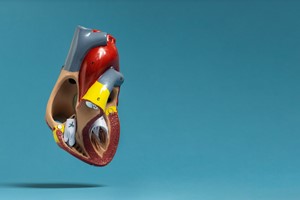In the dynamic realm of modern healthcare, the integration of wearable medical devices represents a significant shift in how we approach preventive care and patient management. With the market for these devices experiencing exponential growth – from its current valuation of $27.8 billion to a projected $250 billion by 2032, as highlighted in a comprehensive report by Emergen Research – it's imperative to delve into the intricate considerations shaping their design and development.
At the heart of wearable medical device innovation lies the imperative of reliability and accuracy. These devices, spanning a spectrum of applications from tracking emotional responses to monitoring vital signs, necessitate meticulous testing to ensure consistent performance and precise data capture. Advanced battery testing methodologies, facilitated by emulation software, offer insights into longevity and efficiency without depleting actual batteries. Furthermore, the testing of wireless connectivity, encompassing 5G signals and Bluetooth integration, is indispensable to uphold uninterrupted data transmission, particularly in environments fraught with wireless interference, such as hospitals.
Interoperability emerges as a linchpin in the seamless integration of wearable medical devices into existing healthcare ecosystems. Facilitating the fluid exchange of data among diverse devices and systems not only expedites early disease detection but also augments the scope for personalized treatment modalities. Automated software testing emerges as a pivotal enabler in this domain, enhancing the cohesion of electronic health record systems and augmenting the precision of patient monitoring and data analysis.
However, amidst the strides towards innovation, the specter of cybersecurity and data privacy looms large. The burgeoning Internet of Medical Things (IoMT) necessitates stringent security measures, including encryption protocols and adherence to regulatory frameworks like HIPAA, to safeguard sensitive patient information against cyber threats. In tandem, regulatory compliance, including potential FDA approval, underscores the imperative of trust and reliability in wearable medical devices.
The trajectory of wearable medical devices in modern healthcare holds promise for transformative advancements in preventive health and personalized patient care. By prioritizing considerations such as reliability, interoperability, and cybersecurity, stakeholders can harness the full potential of wearable technology to redefine healthcare delivery and enhance patient outcomes. As the industry continues to evolve, a steadfast commitment to these principles will be pivotal in navigating the complex landscape of wearable medical devices and realizing their profound impact on the future of healthcare.
medtechintelligence.com - Marie Hattar













